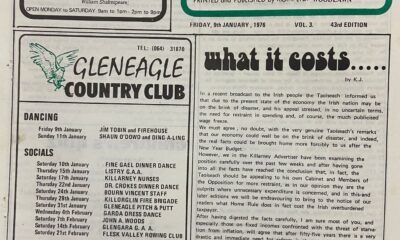News
What kind of insurance does a carpenter or joiner need?

By John Healy of Healy Insurances
When we are advising carpenters and joiners on their insurance we establish what assets are owned by the business and also what tasks would be performed.
Sole trader carpenters who work on sites will need to have Liability Insurance in place; Public and Products Liability and Employers Liability if applicable. If the business has a workshop with fixed woodworking machinery and stock then a Combined Property Policy should also be in place. Woodworking risks are typically rated higher than a standard factory rate and safety measures such as guarded machines and integrated fire and smoke detection systems would be necessary. Below is an outline of the typical covers needed:
Employers, Public and Products Liability Insurance
Employers Liability Insurance covers your legal liability in the event that you are negligent and required to pay compensation for bodily injuries to an employee in the course of their employment.
Employee numbers and annual wages will need to be disclosed accurately and annually.
Public Liability Insurance covers your legal liability in the event that you are negligent and required to pay compensation for bodily injuries or damage to third party property in the course of your business activities.
Your annual turnover will need to be disclosed and reviewed annually. Many main contractors and State bodies may require you to have a minimum of €6.5 million limit of indemnity.
Products Liability Insurance covers your legal liability for injuries and property damage in connection with goods sold or supplied.
Additional covers such as tools and equipment and personal accident can be included on some policies.
Commercial Vehicles
First and foremost, if you have a commercial vehicle then road risk cover is a requirement by law. As with all other motor insurance products, the cover options would be comprehensive, third party fire and theft, or third party only. Optional extras are windscreen cover and trailer cover.
The value of the vehicle is important to review each year, as are the drivers.
Light commercial vehicle policies usually give “open driving 25 to 70-year-olds” but sometimes naming the drivers who will use the vehicle is a better option and can save you money.
If you do not have a fully earned No Claims Bonus it may be an option to have your driving history on other vehicles taken into account, for example on your own private vehicle.
Forklifts should be covered for road risk cover and inspection to comply with health and safety legislation.
You should seek out the expert advice of a professional Insurance Broker to review your insurance needs. At Healy Insurances, we can review your business requirements, offer expert advice and save you money on your premiums.
News
Garda Seán O’Sullivan honoured as 2025 Radio Kerry Hero
News
Killarney Suzuki dealer wins national customer service award
A Killarney motor dealership has been recognised at national level after Dineen O’Donoghue Suzuki was named Aftersales Customer Experience Dealer of the Year at the 2025 Suzuki Ireland Dealer of […]














